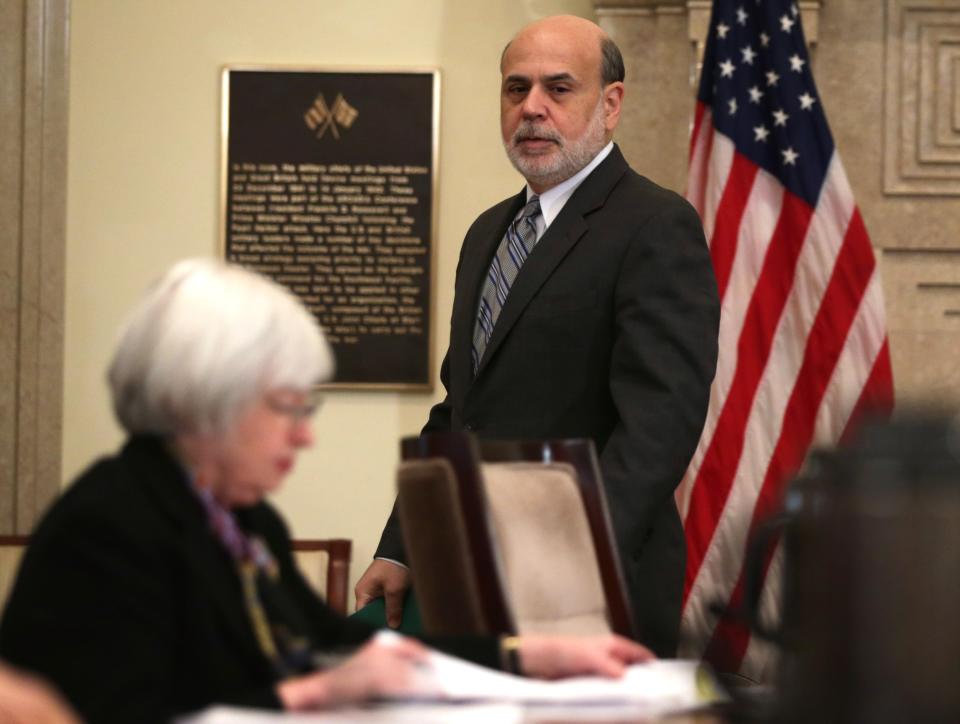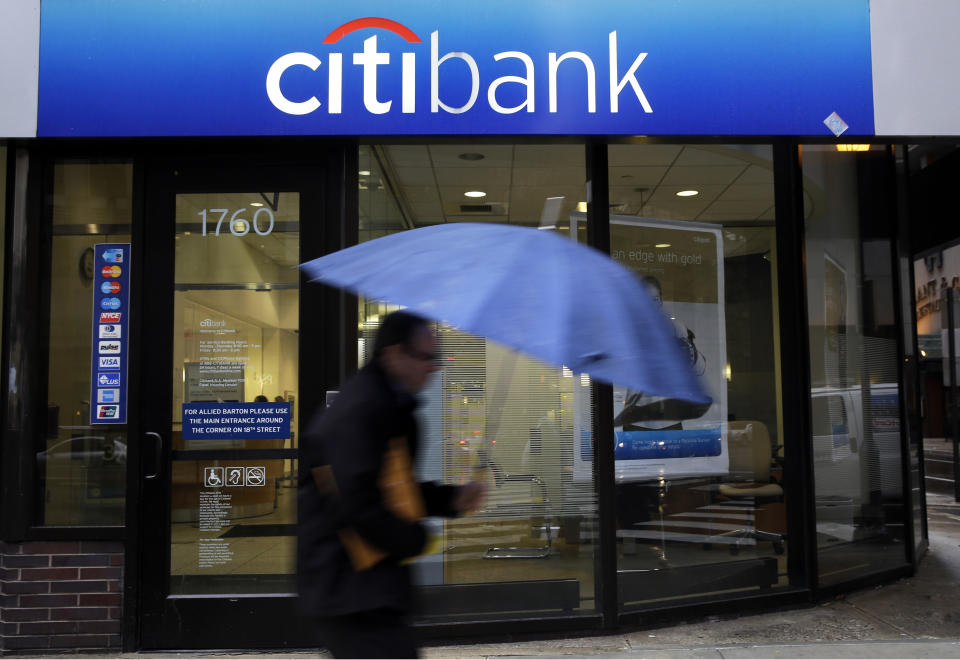The financial crisis is over
America’s 34 biggest banks have passed the Federal Reserve’s stress test, giving them the green light to pay out dividends and buy back stock. It’s a sign that regulators have finally closed the book on the 2008 financial crisis, a time when banks starved for capital were forced to do the opposite.
The test, also known as the Comprehensive Capital Analysis and Review (CCAR), aims to make sure that banks have enough capital to cover losses in the case of another recession. This year marks the first time in the seven-year history of the tests that no bank failed.
“With all of the banks passing the stress tests, with many giving back 100% of earnings in capital returns, this is a clear, demonstrative stand that the banks are back to full health,” RBC’s Gerard Cassidy told Yahoo Finance.
The news comes during a week when central bankers around the world have signaled their desires to tighten monetary policy. Comments from European Central Bank (ECB) President Mario Draghi Tuesday suggested the level of stimulus will be adjusted as the economy improves. Bank of England Governor Mark Carney said on Wednesday that the time is nearing for an interest rate increase. Even Canada’s Stephen Poloz reiterated he is considering a rate hike.

During the latest Fed meeting on June 12, Fed Chair Janet Yellen emphasized the need for policy normalization, including continued rate hikes despite weak inflation data. Importantly, the Fed unveiled its plan to reduce its balance sheet, which became bloated during the crisis as it bought up bonds in its effort to keep the bond markets liquid and interest rates low.
But her most optimistic remarks came during a talk in London on Tuesday.
“Will I say there will never, ever be another financial crisis? You know, probably that would be going too far. But I do think we’re much safer and I hope that it will not [happen] in our lifetimes and I don’t believe it will,” Yellen said.
Health of the financials
The report card of this year’s stress tests, which were first introduced early under President Barack Obama’s administration and are required by the 2010 Dodd-Frank financial overhaul, allow for normalization of capital returns for the banks.
Specifically, banks’ average payout—the amount banks will distribute to shareholders via dividends and buybacks—is expected to reach close to 100% of their earnings over the next year versus 83% last year, according to Cassidy.
JPMorgan Chase (JPM), Bank of America (BAC), Morgan Stanley (MS) and Wells Fargo (WFC) were among the banks that immediately announced dividend raises and share buyback plans.

Notably, Citigroup (C) doubled its quarterly dividend to $0.32 and announced a common stock repurchase program of up to $15.6 billion, its biggest ever and surpassing its $15 billion buyback announced in 2005 before the financial crisis.
These milestones stands in stark contrast to the surprising dividend cuts we saw during the financial crisis. In fact, during the crisis no one believed financials analyst Meredith Whitney when she said at the end of 2007 that Citigroup would need to cut its dividend… and then it did in January 2009.
A positive sign for the markets
These positive stress tests, along with an improving economy and the prospect of rising interest rates, have fueled financial sector stocks higher, which is important for the overall economy, Cassidy said.
“Financials tend to lead the markets during traditional economic cycles, so for them to re-energize and start to lead the market again at this point in the cycle is important for extending the cycle further than we’ve seen in recent history,” he said.
The Financials SPDR ETF (XLF) is up 35% in the past year, double the performance of the S&P (^GSPC) for the same period.
Nicole Sinclair is markets correspondent at Yahoo Finance
Please also see:
Private companies ready for IPO just got a major warning
Why investors are suddenly gaga over America’s struggling rental car companies
Dan Loeb’s Nestle stake brings attention to the evolving packaged goods business


